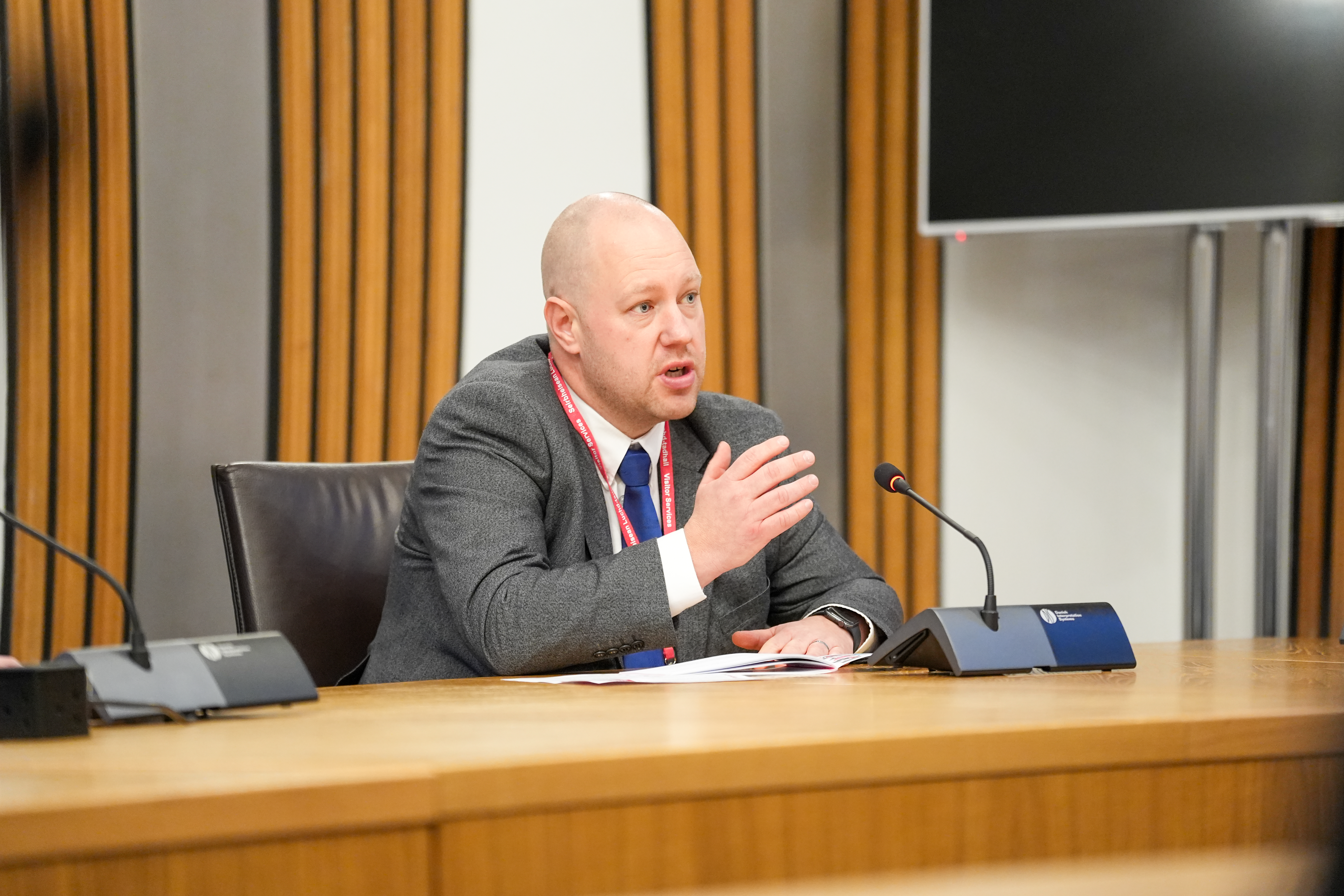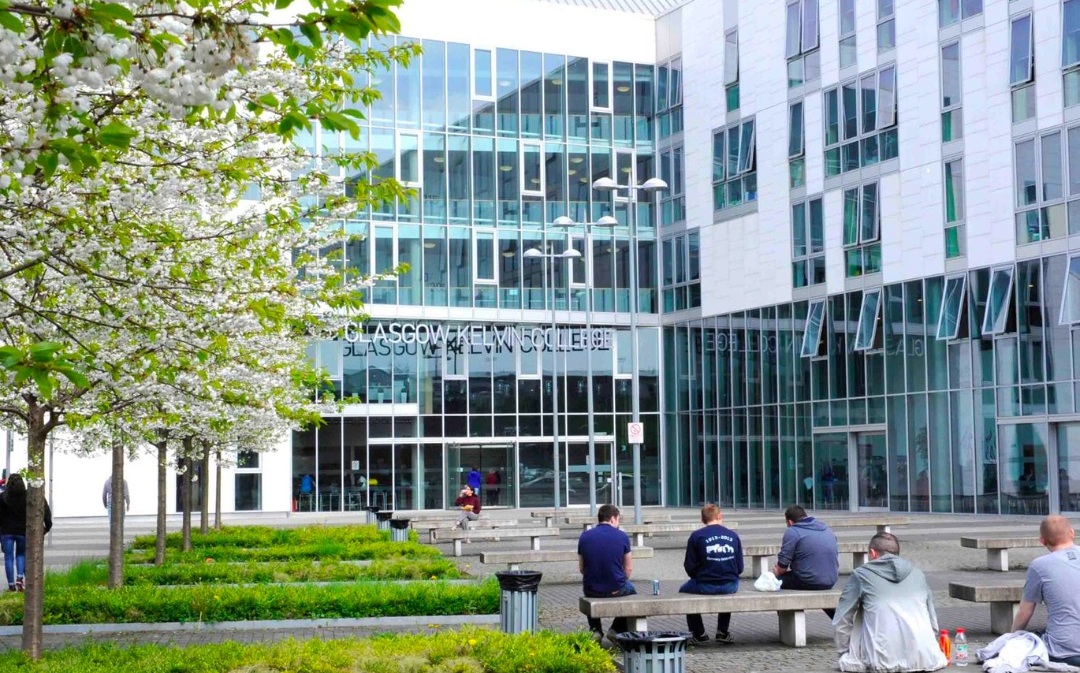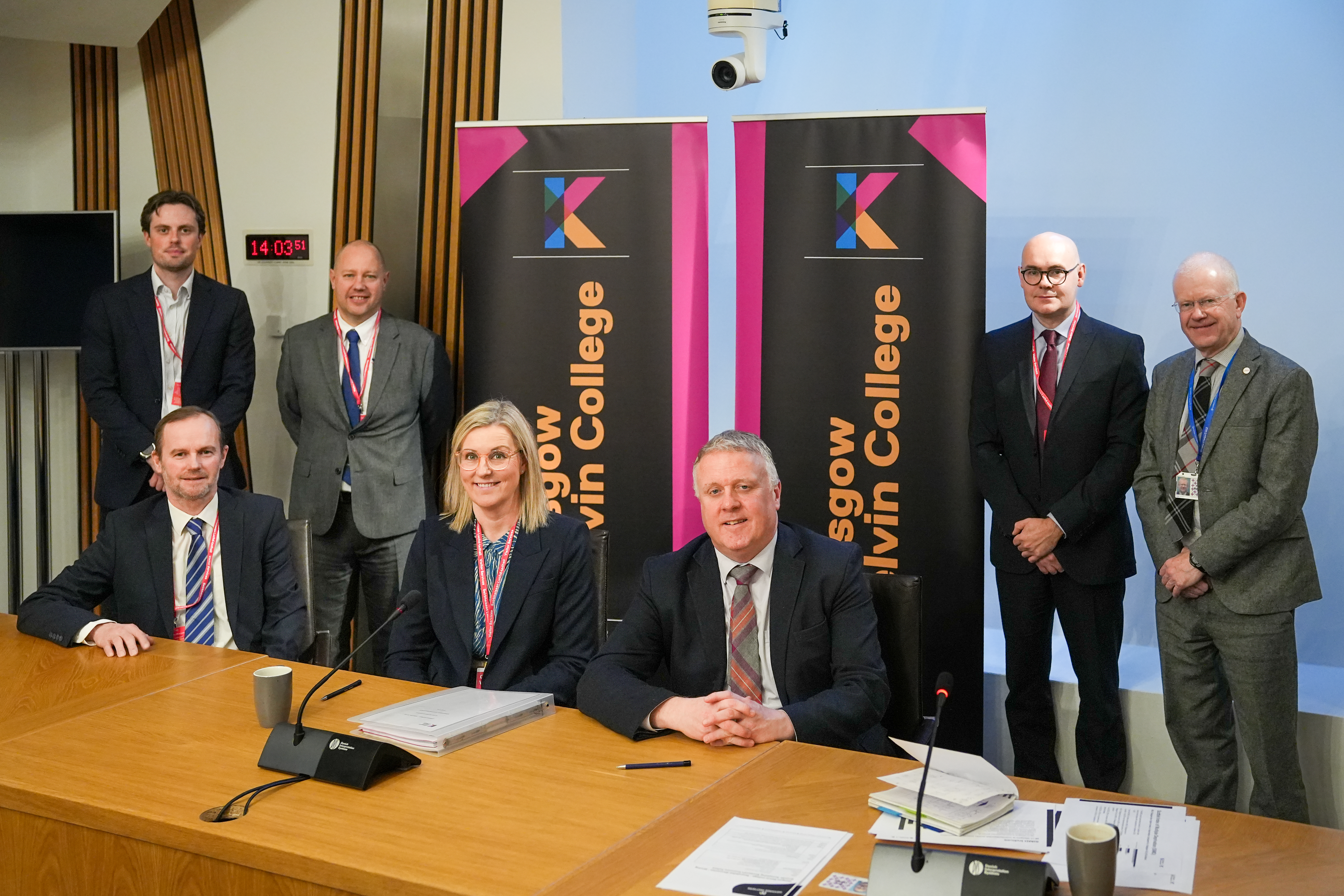McTaggart highlights importance of Glasgow Kelvin College in unlocking hidden workforce

Ross Hammell, CSR manager at McTaggart Group, speaks at the launch of the Glasgow Kelvin College Impact Report at the Scottish Parliament
McTaggart Construction has praised Glasgow Kelvin College for opening doors for people who might otherwise be overlooked, improving attainment, and supplying industry with the skilled talent needed to meet Scotland’s economic and social challenges.
Against a backdrop of funding cuts to Scotland’s colleges, a new independent report on the institution has revealed it delivers £7 in economic and social value for every £1 of public funding it receives.
The £194 million boost to Scotland by Glasgow Kelvin College – detailed in a report by BiGGAR Economics – underscores the critical role it plays in tackling economic inactivity and deprivation in the north-east of the city.
Ross Hammell, corporate social responsibility manager at McTaggart Group, joined Bob Doris MSP and others at the Scottish Parliament to mark the launch of the report.
Ross said: “We’re proud to work closely with Glasgow Kelvin College across a range of programmes: from school-based initiatives that give young people their first experience of construction, to apprenticeships and site placements across our projects.
“The college consistently opens doors for people who might otherwise be overlooked. Those pathways give marginalised people a genuine first step into work and provide our industry with the skilled talent it urgently needs to meet Scotland’s housing and infrastructure demands.”

Around 100,000 people in north-east Glasgow live in areas classed among the 20% most deprived, with more than half (58%) of local data zones falling into that bracket. Some 40.5% of Glasgow Kelvin College’s students come from Scotland’s most deprived postcodes, compared with a sector average of 23.5%.
The study finds Glasgow Kelvin College generated £85.4m in operational impact, £63.7m in wellbeing benefits, £27m in the social value of qualifications, and £17.8m in wage premiums as learners moved into employment or higher-paid roles. Of the wellbeing impact, £50.5m relates to lifetime gains for students who may otherwise have remained out of work or education.
Courses aligned to national skills shortages – including engineering, construction, health and social care, digital and low-carbon technologies – generated £27m in social value, while apprenticeships and vocational qualifications delivered an estimated £17.8m uplift in wages for former students.
Joanna Campbell, principal of Glasgow Kelvin College, said: “This report shows how Kelvin is the best-placed institution to help mobilise a hidden workforce. We are proud that our institution provides a bridge for people in north-east Glasgow, helping them move from economic deprivation into the skills needed by today’s employers.
“Every day, we step up to the challenges we face by serving communities with some of the highest levels of deprivation in Scotland, and in doing so deliver a significant return for both Scotland’s economy and its society. Colleges are a solution to the biggest challenges our country faces, not a cost to be managed.
“North-east Glasgow has a young population with incredible talent and potential, yet it has some of the lowest levels of wellbeing and highest levels of economic inactivity in the country. Everything we do is driven by our mission to unlock this hidden workforce and break the cycle of poverty, unemployment and poor mental health.
“Beyond the classroom, we’re working with employers and schools through apprenticeships, pre-apprenticeship programmes and tailored partnerships that help businesses fill critical skills gaps.”

The Glasgow Kelvin College Economic Impact Report launch at the Scottish Parliament
The figures arrive as Scotland’s college sector warns of deepening financial pressures. Audit Scotland has reported a near 20% real-terms fall in funding since 2021/22, alongside falling student numbers and growing deficits.
Amid these challenges, the report demonstrates how Glasgow Kelvin College is essential to delivering Scotland’s future workforce, tackling child poverty and supporting the transition to a greener, fairer economy.
In addition, the college is praised for providing pathways for adults out of work, school leavers with few or no qualifications, young people attending youth hubs and learners accessing English for Speakers of Other Languages (ESOL) programmes. This includes working with the “inactive workforce” (people of working age not currently in employment, education or training).
Last year, the college delivered 3,839 community learning programmes and 1,921 non-accredited courses across 32 community learning centres. Its youth hubs were recognised for helping reduce street incidents and diverting young people away from the criminal justice system and towards education and training.
Bob Doris MSP, Member of Scottish Parliament for Glasgow Maryhill and Springburn, said: “Glasgow Kelvin College provide an excellent educational experience for many of my constituents and are responding positively to the skills needs of businesses within our city and beyond.
“This new report demonstrates the wider value of Glasgow Kelvin College to our economy. It also makes clear their success in improving educational attainment and providing a pathway to employment for many learners from lower income areas. I commend both staff and students at Glasgow Kelvin College for their ongoing efforts, commitment and success.”

















